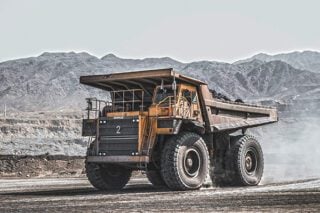
In April 2022, Johnson & Johnson (J&J) shareholders voted to continue selling its talc-based baby powder outside North America. At this time, more than 65,000 lawsuits have been brought against the company, claiming the powder causes cancer. J&J is currently undergoing bankruptcy proceedings to address related litigation.
In 2018, the Food and Drug Administration (FDA) found asbestos in the talc-based baby powder. In 2019 and 2020, J&J recalled and eventually stopped selling the talc-based product in the US. Since then, nearly 200 organizations have been calling to ban the product globally. Despite this, sales of the J&J baby powder have continued abroad.
Talc-Based Baby Powder Still Sold in Global Markets
Since 2020, nearly 200 organizations have been calling to globally ban J&J’s talc-based baby powder. In April of this year, J&J shareholders voted on a proposal to end sales outside of North America. The proposal said selling the talc-based powder could take away from J&J’s image as a trusted company.
So far, the company has taken some action in North America. In 2019, J&J stopped sales of the talc product in Canada and the United States. The company says this was only so manufacturing could focus on high-demand medicines. The company still sells cornstarch-based baby powder in North America. Despite having the option of this cornstarch alternative, shareholders chose to continue selling talc-based baby powder globally.
J&J’s Talc-Based Baby Powder and Cancer Concerns
Until recently, J&J’s baby powder had been exclusively talc-based. Talc has been linked to numerous health concerns. It is a naturally occurring mineral that is often found near asbestos. During mining, the two minerals can intermingle. Asbestos is a dangerous carcinogen. Since the 1950s, some testing has found asbestos in J&J’s baby powder.
In 2018, the FDA found asbestos in samples of J&J baby powder. The company recalled 33,000 bottles of powder, eventually stopping North American sales. J&J claims this is unrelated and that its baby powder is safe and asbestos-free. Still, thousands of people have linked their cancer diagnosis with their use of J&J’s baby powder.
Despite evidence linking talc and cancer, J&J claims the science doesn’t support this connection. The company has fought these lawsuits and continues to do so.
J&J’s Controversial Bankruptcy Filing Process
So far, J&J has spent more than $4.5 billion in litigation costs and awards related to these cases. As the number of lawsuits grew, the company began pursuing a controversial legal tactic. This tactic, called the Texas Two-Step, is a specific type of bankruptcy filing.
First, J&J created and funded a subsidiary named LTL Management LLC (LTL). Then, LTL absorbed the liabilities associated with talc litigation. LTL filed for bankruptcy protection shortly after. While J&J is worth more than $400 billion, it only funded LTL with $2 billion. This may limit the financial impact on J&J from talc litigation.
Some say that J&J’s overall response shows the company puts profit over people. Internal emails referred to the powder as a “sacred cow” of its product offerings that had to be protected. This perspective may provide insight into why shareholders voted to continue global sales.




